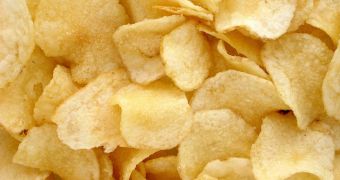According to the conclusions of a new study carried out by a consortium of UK scientists, it would appear that brain activity and self-control patterns can be drastically influenced by snack consumption and people's body mass indexes (BMI).
The work was carried out by investigators at the University of Exeter, the University of Cardiff, the University of Bristol and the University of Bangor. The team primarily focused its attention on the brain's reward center and on how it responds to images of fast food and snacks.
What the researchers found was that reward center neural activation patterns could be used to predict how much people would go on to eat after the study. The amount of food each participant ate could be predicted more efficiently on this basis than on the level of hunger the subjects themselves reported.
Scientists also asked each person in the study to fill out a questionnaire meant to gage their level of self-control. When faced with the aforementioned pictures, high-BMI, low self-control individuals showed the highest amount of neural activation in the brain's reward center.
Interestingly, the team found that people with low BMI and high levels of self-control were also very likely to display a lot of activity in this area of the brain. According to the team, specific “brain training” can be used to reduce the influence of food-related cues on the human brain.
Details of the study appear in a paper entitled “Nucleus accumbens response to food cues predicts subsequent snack consumption in women and increased body mass index in those with reduced self-control,” which is published in the latest issue of the esteemed medical journal NeuroImage.
Over the past few years, an increasing number of studies have suggested that gaining weight and overeating may both be tied to changes in the nucleus accumbens, an area of the brain that plays an important role in underlying motivation and rewards.
“Our research suggests why some individuals are more likely to overeat and put on weight than others when confronted with frequent images of snacks and treats,” researcher Dr. Natalia Lawrence explains.
“Food images, such as those used in advertising, cause direct increases in activity in brain ‘reward areas’ in some individuals but not in others. If those sensitive individuals also struggle with self-control, which may be partly innate, they are more likely to be overweight,” she adds.
“We are now developing computer programs that we hope will counteract the effects of this high sensitivity to food cues by training the brain to respond less positively to these cues,” concludes the University of Exeter expert, who was the lead researcher on the study.

 14 DAY TRIAL //
14 DAY TRIAL //